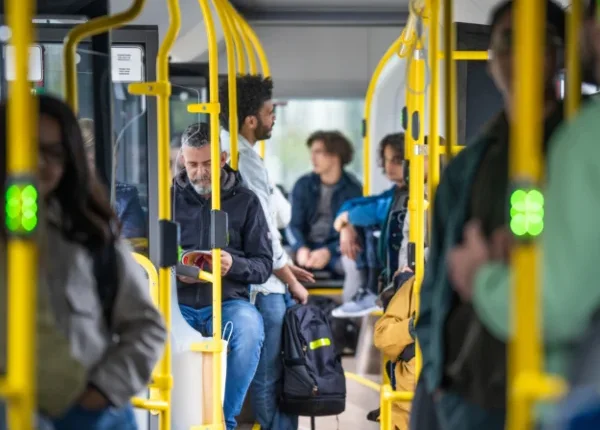This year, the bus industry has been navigating change in the way it’s managed, while grasping the opportunity to drive efficiency, improve sustainability and meet the needs of local communities.
Politically, 2024 was a year of two halves, with a general election accompanying the start of summer. As a new government swept in, some projects across the bus industry accelerated while others were put on hold. For a few months the industry held its breath to see what the ripple effect would be from decisions on issues such as funding, public control and the bus fare cap.
Enhanced partnerships and franchising
One trend which was definitely set to continue was the move towards enhanced partnerships and franchising. In recent years, local transport authorities (LTAs) have been seeking more control over bus services and fares.
This autumn, the new Government announced plans to simplify the franchising process, and speed it up with the aim of saving vital bus routes and making services more reliable. These policies were backed up with a £1 billion funding boost.
With greater responsibility falling to the LTAs, many have been reviewing their systems to assess whether they have the skills, technology and resources to manage an efficient service. LTAs have also been exploring how their data can provide the insight they need for planning services, running the routes and reviewing their performance.
Re-thinking the bus control room
In March 2024, the Transport Focus survey revealed that 80 per cent of bus passengers in England were satisfied with their latest journey. While that’s good news, bus operators have been keen to focus on the experiences of the 20 per cent.
A good bus journey is largely determined by what is happening in the control room and how control teams can use the information available to ensure a service runs as reliably as possible.
There’s been growing recognition that control rooms would benefit by not having to dip in and out of half a dozen disparate systems to access and communicate information. Some of the country’s larger bus operators have come together this year to discuss their vision of what the control room of the future looks like.
They have called for a better way to streamline operational data so bus companies can drive up their passenger satisfaction levels.
Spotlight on scheduling
Continuing the theme of efficiency, 2024 has seen a renewed focus on scheduling.
The Transport Focus survey suggests that only 70 per cent of passengers are satisfied with the punctuality of their bus, and this varies significantly by region.
Therein lies the challenge, because not all regions are the same. Urban areas experience much higher levels of traffic congestion and it only takes a broken down vehicle, or emergency water main repairs to seriously affect the bus network.
With this in mind, the industry has been experimenting with scheduling approaches to try to give passengers a more accurate bus timetable. Rather than producing a beautifully choreographed but unrealistic schedule which will only lead to passenger disappointment, operators are looking for solutions which are robust enough to expect the unexpected on the country’s crowded highways.
There has been some talk about whether AI might have a role to play in creating schedules. It’s early days, but the potential is there.
Electric buses power up
News of investment in electric fleets hit the headlines in 2024, with Oxford launching one of the biggest UK fleets of electric buses outside London back in January. Other regional bus companies including Salisbury and the Isle of Wight followed suit later in the year.
As the country increasingly commits to decarbonising buses, the industry has been reviewing how it can provide the charging infrastructure for electric fleets, as well as creating schedules which will enable bus drivers – and their passengers – to avoid suffering from range anxiety.
With more electric buses on the network, it will become possible to collect richer data on electric bus charging which we will be able to build into our scheduling software, creating better schedules for the new world of greener travel.
A look ahead to 2025
The Government has pledged to government action to end the bus postcode lottery, empower councils to take back control of services, and deliver a bus revolution. Next year will show how this revolution will take shape.
It will be interesting to see what the new franchises and enhanced partnerships will look like, as many regions will not need a cookie-cutter version of what’s happening in London or Manchester. They will be more likely to shape a model which works for their region. The question is, will there still be room for smaller, independent operators to run bus services, or will the contracts go to the larger players?
With the emphasis on serving local communities, LTAs might need to rethink their commitment to demand responsive transport (DRT) such as flexible, dial-a-ride services. DRT can be valuable in both urban and rural areas, but it is costly to run. 2025 might be the time for LTAs to see whether they can balance their community needs with cost and viability.
Solutions to help you accelerate in the new year
Our suite of solutions can support bus operations with the challenges and opportunities 2025 will bring.
- Make the hub of your bus operation as efficient as possible with our control room systems.
- Our scheduling software helps you create schedules which work in the real world.
- This powerful route performance analytics solution will allow you to analyse performance at the route level and optimise your network to enhance profitability.


